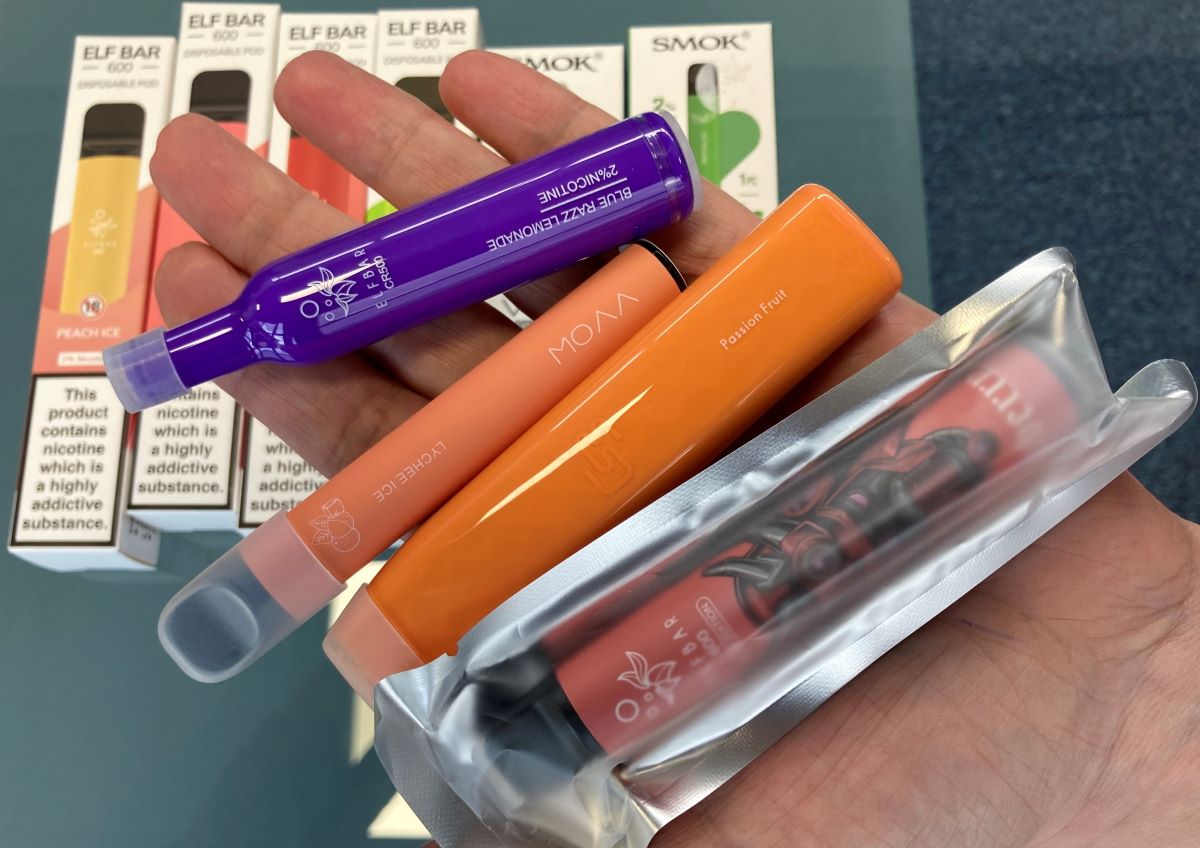
Shetland Islands Council’s Trading Standards team is highlighting the health risks of some vaping products, following an investigation that shows none on sale locally meet the required legislation.
Across Scotland, Trading Standards Officers have carried out a comprehensive examination of the market for vaping products during October to December 2021. They found a wide range of non-compliant devices, with risks to both safety and health.
The project was influenced by press reports and information from Trading Standards throughout the UK that illegal single use, disposable nicotine vaping products (NVPs) were on sale at retailers across the country, and a suggestion that these devices were being used by young people under the age of 18.
The findings in Shetland matched those across Scotland - none of the disposable vaping devices on sale in Shetland complied fully with the legislative requirements.
They were either not labelled correctly in accordance with the Tobacco and Related Product Regulations, did not contain sufficient Classification, Labelling, and Packaging Regulation information, or had not been approved by the Medicines and Healthcare products Regulatory Agency and published on their website.
The project has also highlighted environmental concerns around the waste battery aspect of the devices, millions of which are imported every year, mostly from China.
In addition there are particular health concerns about the attractive nature of these devices, which are often brightly coloured and made to be appealing to children.
David Marsh, Trading Standards Team Leader for Shetland Islands Council, explained: “Here in Shetland, just like our colleagues throughout Scotland, we treat the sale of nicotine vaping products as a high priority, especially where children are concerned. The rapid expansion of this market for disposable nicotine devices is worrying and presents real risks to the environment and health, especially the health of young people.”
Sheila Duffy, Chief Executive of ASH (Scotland), the independent Scottish charity taking action to reduce harm caused by tobacco, added: “Trading Standards Officers in Scotland have done an excellent piece of work here in highlighting these issues. While some people use vaping to quit smoking, there is a real risk that these products can attract young people into experimentation and addiction. The current craze with disposable, brightly coloured and flavoured e-cigarettes can be child appealing, and that is unacceptable.”
Notes for Editors
- The national project involved most of Scotland’s local authority trading standards services, including Shetland, and was coordinated by The Society of Chief Officers of Trading Standards in Scotland (SCOTSS), which represents the 31 local authority Trading Standards services in Scotland. The project interim report can be found here (PDF link)
- Trading Standards Officers (TSOs) in Scottish councils advise on and enforce laws that govern the way we buy, sell, rent, and hire goods and services. Local authorities carry out inspections and monitor or investigate complaints, they work with businesses to help achieve compliance but ultimately, can instigate prosecutions or take civil actions against those who break the law.
- Disposable NVPs (Nicotine Vaping Products) in general are regulated by several and complex rules including the Tobacco and Related Product Regulations 2016 (TARP Regulations); the Tobacco and Primary Medical Services (Scotland) Act 2010; the Classification, Labelling, and Packaging Regulation 1272/2008 (CLP); the Waste Batteries and Accumulators Regulations 2009 (as amended), and there are a number of different national and local enforcers involved, local authority Trading Standards services; the Health and Safety Executive (HSE), the Office of Product Safety and Standards (OPSS), and the Medicines and Healthcare products Regulatory Agency (MHRA)
- Action on Smoking and Health (ASH) Scotland is an independent Scottish charity taking action to reduce the harm caused by tobacco. Their vision is that everyone has the right to good health and to live free from the harm and inequality caused by smoking.
